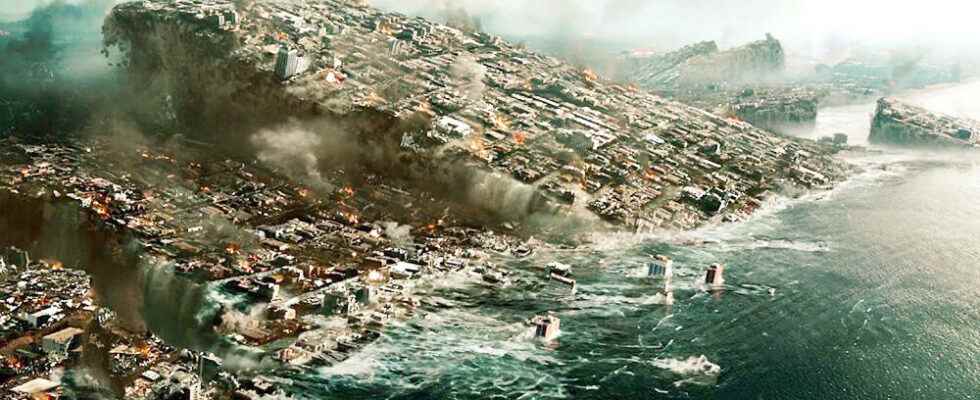Roland Emmerich is the maestro of the catastrophe genre and in 2009 he presented his most powerful work: 2012. The orgy of destruction costs 200 million US dollars and became Emmerich’s most successful film with grossing almost 800 million dollars. The advertising campaign, which went completely out of control, played a large part in the success. We will go into more detail about this in the article.
In a nutshell, that’s what the 2012 disaster movie is about
2012 – Trailer (German) HD
In 2009, the top politicians of the G8 countries received the message that in 2012 the earth will end, a fact that has been proven by numerous research results. The heads of government immediately order the construction of arks, with which enough people and animals can be saved to ensure the survival of mankind. But by no means everyone will survive – at least not the poor part of the population.
This part of the world’s population is represented in the film by John Cusack and his blended family, who fight their way through the chaos of the disaster to the ark that can save them.
The bizarre 2012 ad campaign sparked fear
The theory that the world would end in 2012 was circulating as an urban myth in the ’00s. The basis was the Mayan calendar, which would end in 2012 – a supposedly clear sign that the last hour of planet Earth had struck in the same year. Which of course didn’t happen. 2012 uses the prophesied year of doom as a film title. But the exploitation of the collective angst surrounding the Maya myth did not end here.
The first trailer of 2012 ended by asking the viewers to “find out the truth”. You should search the Internet for the term “2012”. Whoever did that came across, among other things, a supposed authentic website , which no longer exists today. There you could apply for register a lottery, which is giving away tickets to the Ark of Salvation, as portrayed in the film. Of course there were no tickets, just like the end of the world in 2012, obviously. The website was a gimmick.
The 2012 ad scared teenagers
That marketing campaign naturally fell on fertile ground, and for supporting conspiracy narratives seriously discussing the 2012 scenario, it was heavily criticized at the time by the Guardian, for example. The criticism was absolutely appropriate. Because as the Independent reported in 2009, in the run-up to the theatrical release of 2012 thousands of concerned messages to NASA, the US space agency.
dr David Morrison, a NASA astronomer, condemned the website, which gave no indication that it was fake or a joke:
She looks very professional. She describes an organization that has existed for 30 years and consists of international scientists, business people and government officials who have found that a There is a 94 percent chance that the world will end in 2012. And it’s all made up, pure fiction. But apparently some people take it seriously.
And if you really believes in the inevitable end of the world in three yearsthen you get one thing above all: fear.
Teens have written to me saying they are considering suicide because they don’t want to see the end of the world. Lying on the internet and scaring kids to make money is ethically wrong. In the end, the campaign was still a joke with no malicious intent and primarily intended to draw attention to the film in a playful way. In retrospect, however, a break of any kind would have been appropriate.
*. . .
